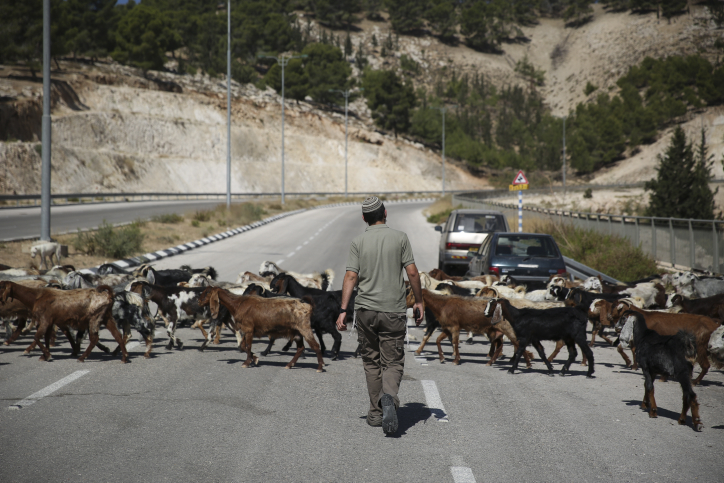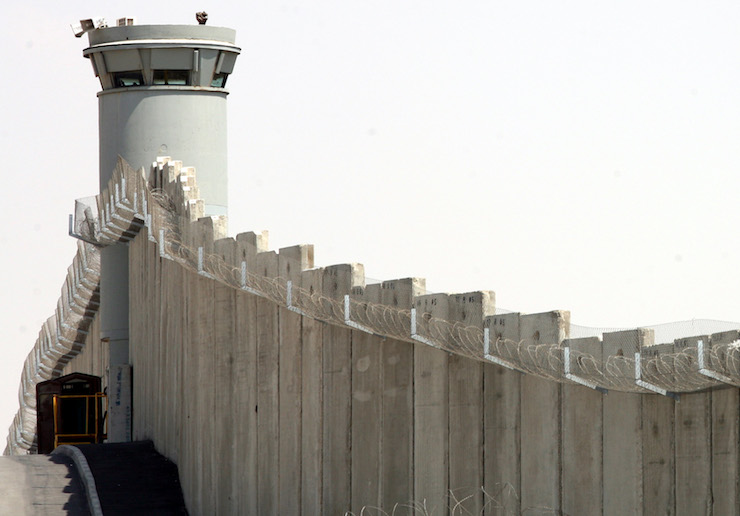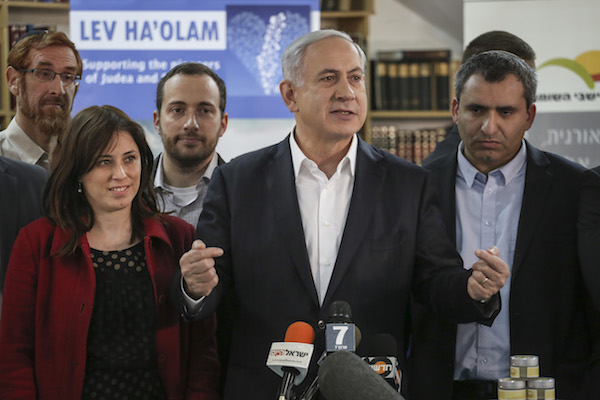Seven years after publishing a feature on Israeli settlers who support equal rights for Israelis and Palestinians, it’s time to revisit the idea.

There is nothing the Israel Right loves more than adopting the criticism of its rivals on the Left in order to justify its rule. Strangely, this criticism has turned into a main aspect of the language settlers use when describing their “coexistence” with the Palestinians in the occupied territories.
Their argument goes as such: while Tel Aviv is a bubble where rich, liberal Jews love Arabs in theory only, in the West Bank we truly see the Palestinians as humans and as neighbors. The Left fantasizes about peace agreements with people it doesn’t even know, but the Right’s version of coexistence includes real people — who are sometimes filled with hate and sometimes are not, who work and live together but want to keep their own culture, and who see each other as equals.
Sounds great, doesn’t it? Except that if the first part of the argument has some grounding in reality (even if limited, since there are Arabs in places like Tel Aviv-Jaffa, as well are joint Jewish-Arab schools and a shared — if limited — economy), the second part is simply absurd. In fact, all it does is evince the grotesque lack of awareness brought on by the Right’s intoxication with power.
Ask the Palestinians
The recent outcry over the IDF’s futile attempt to approve the building of several thousands housing units for Palestinians in Qalqilya over the next several decades proves that the Right’s imagined coexistence in the occupied territories is uncannily similar to the kind whites dreamed of in Rhodesia. That is, we can get our cars fixed for cheap, and they can come work for us, bereft of any rights. In the meantime, they can continue living in their crowded cities and squalid refugee camps.
On the Right, the political argument takes place between the colonialists, who accept this current situation, the apartheidists, who believe in complete separation between the two populations, and the transferists, who are now openly awaiting a third Nakba.

Although I live in Tel Aviv, I have met a few Palestinians in my life. Surprisingly, none of them believe that the right wing’s authentic, violent, outright racism is preferable to the Left’s invisible discrimination. At most, they despise both of them.
It is true that Jews and Palestinians live amongst each other in the West Bank, but we must also say a word about the way in which they cross paths: Palestinians must travel on dilapidated roads, behind walls and barbed wire, and are crowded into checkpoints like cattle. Settlers, on the other hand, live in pleasant communities, traveling in new cars on nice highways, angry at every little inconvenience caused by that other pesky nation that lives here. The ability to ignore all these may be a human quality, but it is certainly not something to be proud of for its “authenticity.”
A few years ago, I wrote a piece for Haaretz about the leaders of the Israeli Right who believe in a democratic, one-state solution. The article made more noise than anything else I have published, and there were times I thought to go back and reinterview those same people. But there was no point; two of them, settler journalist Uri Elitzur and Gush Emunim founder Hanan Porat, have since died, while the other two, President Reuven Rivlin and Likud MK Tzipi Hotovely, advanced politically. But the Right’s democratic vision hasn’t moved an inch — if anything, it has retreated.

Today there is no viable movement for annexing the West Bank and granting citizens to its Palestinian residents. In fact, there is no worldview that accepts the very notion of Palestinian rights; there is no pilot for partnership or coexistence in any major West Bank city; not a single interfaith initiative; and no Israeli alternative to the two-state model or the corrupt, violent Palestinian Authority. At most there are a few commercial initiatives or joint environmental struggles, and a handful of settlers — praiseworthy as they may be — who take part in movements for change.
Herein lies the difference between the Right and the liberal Left, and even some parts of the political center. When the latter two are elected to lead the country, they at least try to promote the two-state agenda that they talk about. Under Yitzhak Rabin, there was a tangible change in the rights of Israel’s Palestinian citizens, such that despite all the criticism, there was some correlation between words and deeds. But the Right has been in power these past years, and the religious Zionists have become its dominant group. So where is the alternative? Where is the coexistence, or even the symbolic first step toward one? These interest the Right inasmuch as they can be used to discredit its political rivals, and the only equality they are willing to offer Palestinians is the one between a prison guard and his prisoner.

